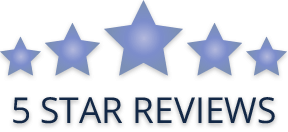Relationship Communication Skills for Medical Practice
In most aesthetic practices, a great deal of money and several staff are involved in encouraging individuals to walk through the door. Consequently, it is important that, once a phone call has been made, or the individual has come into the office to determine if they desire a service, there is a system in place to follow up with the prospective patient.
Unfortunately, follow-up is the one area of activity in the practice that no-one wants to accept as their responsibility. It may be important to explore why this activity is so detested. Reasons may include:
-
- ≫ It seems like we are ‘hard up’
-
- ≫ It sounds like begging for patients
-
- ≫ It seems ‘pushy’
-
- ≫ I do not have the time to do it
-
- ≫ It is hard to get in touch with people.
The truth is that staff have not been trained to follow up, and do not appreciate its importance or how it affects the bottom line. Following up is not easy unless you are giving away money; it takes proper training, perseverance, and effective and positive management. Managers do not like to be involved in any follow up for fear they will be expected to do the work.
Follow-up methods
There are several types of follow-up. Because the goal is to establish a continuing relationship with a patient/caller, there is a need have a series of follow-ups, though they may not be in the same context.
Your staff should follow-up…
- after the website inquiry
- after they have completed the phone call if an appointment was made
- after they completed the phone call if an appointment was not made
- after the consultation when the person has set an appointment
- after the consultation when the person has not booked an appointment
- after the patient has had the procedure/service
- to request a testimonial/review
Follow-up is key all the way through any encounter with a patient. If handled effectively, you will establish many positive and long-lasting relationships. A trained staff is the assurance of effective follow up.
PUMC has 35+ years of cutting edge Cosmetic/Plastic Surgery staff training experience. We offer your practice innovative results with proven and time-tested approaches. Don’t you deserve the best? Contact PUMC Cosmetic Services Training Team today to learn about staff training and how to manage bad reviews using our Global Online Review system. We CAN and WILL help you!
